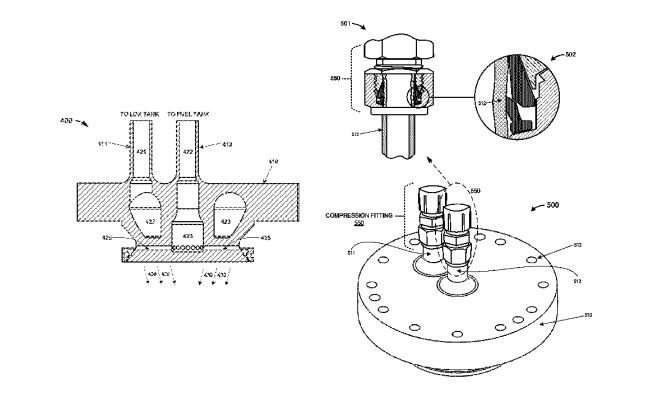A rocket engine is making some noise with two pieces of good news. Reduced cost. Reduced complexity.
The concept that bears the description of "Enhanced Liquid Oxygen-Propylene Rocket Engine" has found its way into a patent awarded to Arizona-based launch company, Vector.
The patent discussion stated that "various difficulties arise when using liquid propellants, such as injector erosion, chamber heat build-up, and potential for leaks in couplings and connections among the various piping and components of the engines."
What's the big deal about the patent? The press announcement answered. "Vector is the first and only launch provider to utilize propylene fuel and liquid oxygen (LOX) in an operational launch system."
The Arizona Daily Star said Vector was awarded a patent on September 11 for its "enhanced liquid oxygen-propylene rocket engine," including a rocket-propellant injector made with 3-D metal printing and optimized to use propylene.
Liquid oxygen and propylene is an alternative propellant technology. But why mess with a good thing? What was wrong with the kind of fuel that had powered the first stage of rockets? Eric Berger is the senior space editor at Ars Technica. Berger helped explain why scientists were motivated to explore.
"For a long time, Rocket Propellant-1, or RP-1, reigned supreme as the fuel of choice for the first stage of rockets. This highly refined form of kerosene, which was derived from jet fuel, powered the Saturn, Delta, Atlas, and Soyuz rockets throughout the 20th century. It even served as fuel for modern rockets like the Falcon 9."
Berger said what was nice is that a lot of fuel could be packed into a relatively small tank. It was not efficient, however. Enter propylene. "The researchers found that using liquid oxygen with propylene, a hydrocarbon gas, provided the ideal combination of combustion efficiency and energy density," said David Wichner, reporting Thursday in the Arizona Daily Star.
Berger in Ars Technica wrote that "a long-time rocket scientist named John Garvey" believed in propylene as a viable fuel for rockets. "After Garvey co-founded Vector in late 2015 along with Jim Cantrell and Eric Besnard, he got a chance to put his propylene fuel into action for a real orbital rocket."
The propylene fuel allows the engine design to avoid the use of turbopumps, used to increase the fuel pressure in many rocket engines.
Why is this positioned as not only carrying reduced cost but also reduced complexity? How so?
"When chilled, the propylene gas can be stored under pressure in a tank and fed to the engine directly, with much smaller fuel tanks and without fuel pumps normally used in rocket engines," CTO Eric Besnard said, in Arizona Daily Star. Also, 3-D metal printing allows designers to build in features such as curved holes that would otherwise call for multiple parts.
What's next?
"The company is still working toward a maiden launch of its Vector-R rocket this year, from a launch site in Alaska," Berger wrote.
Arizona Daily Star said the company was moving toward a date later this year. Wichner reported that "The timing of the company's first orbital launch, from Kodiak, Alaska, was "still up in the air" but Jim Cantrell, CEO, said he expected liftoff between late October and late December.
Vector is a microsatellite launch company. The company site has an ambitious statement about its "BIG vision to reshape the multi-billion launch market and combines dedicated low-cost micro satellites launch (Vector Launch) AND software defined satellites (Galactic Sky) to dramatically increase access and speed to orbit."
The patent application was first filed in October 2016. According to the patent discussion, "the design and components used for rocket engines can vary considerably based upon the fuel and oxidizer selections. These components can include propellant tanks, feed lines, pumps, propellant injection components, and combustion chambers, among other components."
Garvey, President of Launch Services, Vector, commented. "We've been incrementally testing this critical technology for several years in a series of flight test projects and are happy to see the patent awarded."
More information: ** Enhanced Liquid Oxygen-Propylene Rocket Engine, US Patent
© 2018 Tech Xplore























